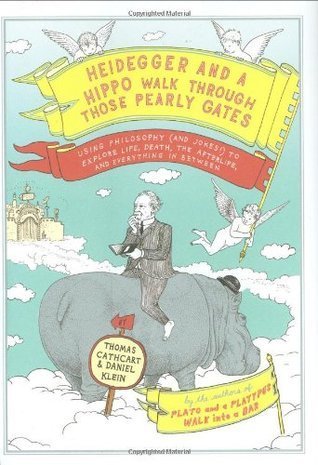What do you think?
Rate this book


224 pages, Hardcover
First published January 1, 2009
Uh, Daryl, we're still waiting for an answer here. Do you really think you're going to die?
Daryl: Well, sure, I know everybody dies. Frank Sinatra's gone. So is Norman Mailer. Not to mention Napolean, Harry Truman, Genghis Khan, and my wife's aunt Edna. So logically it stands to reason that one day I will be dead too. I know that as sure as I know apples fall down instead of up."
Good, Daryl. Well said. But let's be perfectly clear here, we're not talking about your twenty-first-century scientific mind that calls 'em the way it sees 'em. No, we're talking about your regular, sitting-here-on-our-pouch consciousness. Right now, do you really believe that your days are numbered, that each moment that ticks by is subtracting from your allotted moments as a living human being? That when you reach your that's-all-she-wrote moment, you will cease to exist in every conceivable sense of existence?
First we need to do some catch-up on the human condition. In The Concept of Dread and The Sickness Unto Death(it was those upbeat titles that made Soren Kierkegaard such a hot seller in Denmark), Kierkegaard arrived at the meaning of anxiety and despair through a mix of philosophy and psychological introspection. But the psychological problems Soren was interested in weren't the kind that spring from one's personal history - like say, that your mother always preferred your borther and that your dad thought you were being a wuss- but rather the issues we all have as a result of being human and mortal. In fact, we suspect that if Kierkegaard were alive today, he might think the neuroses your corner psychotherapist treats are mere substitutes for our real issue: being responsible for living a meaningful life on the edge of the abyss of death.
The monitor confirmed cardiac arrest as an elderly man suddenly lost consciousness. After about twenty seconds of resuscitation, he came to. Explaining to him that his heart had momentarily stopped, the doctor asked if he remembered anything unusual during that time.
"I saw a bright light," he said, "and in front of me a man dressed in white."
Excitedly, the doctor asked if he could describe the figure.
"Sure, Doc," he replied. "It was you."